
home > articles > apologetics > I Doubt, Part 2
![]()
Part 2

We are divinely designed to doubt! Doubt should be a normal healthy human response to an unsubstantiated claim. Doubt says, I won’t believe this unless I have good reasons to. When it comes to belief in God, more and more people have moved from doubt to cynicism largely because they believe there are no reasons or evidences for the existence of the God of the Bible. All too often those who do believe in God promote the incorrect idea that belief in God is a solely a matter of faith – without any need for rational evidence. Little wonder then many doubters in God have become convinced there is no God. There are some good reasons to doubt God’s existence, but some even better reasons to doubt these doubts!
 The late Christopher Hitchens famously said, God does not exist and I hate Him! You have to question (that is – doubt) this kind of “doubt” about God (it sounds more cynical than doubtful). While claiming the intellectual high-ground, prominent atheists, such as Hitchens and Richard Dawkins, quite frequently reflect what many other more nominal atheists have not been able to articulate to justify their belief that God does not exist.
The late Christopher Hitchens famously said, God does not exist and I hate Him! You have to question (that is – doubt) this kind of “doubt” about God (it sounds more cynical than doubtful). While claiming the intellectual high-ground, prominent atheists, such as Hitchens and Richard Dawkins, quite frequently reflect what many other more nominal atheists have not been able to articulate to justify their belief that God does not exist.
-
Science has removed the need for God (no more ‘God of the gaps’).
-
They have experienced a heart-ache in which they prayed to God, but nothing happened.
-
They have met someone who claimed to be religious yet was obnoxious or hypocritical.
-
They associate belief in God with superstition (superstition has no place in the modern, enlightened world).
-
Belief in God would interfere with their lifestyle, therefore God does not exist.
-
Belief in God is irrelevant to me – I don’t care if there is a God or if there isn’t.
These reasons for doubting God’s existence might be grouped as either, intellectual reasons, emotional reasons, social reasons, or moral reaons. But it is actually not accurate to describe any of these as reasons. Rather, they maybe, at best, assertions, but most of them are, more precisely, excuses. For example, the statement- “Science has removed the need for God” is an assertion. It asserts something that may or may not be true, but the statement itself contains no supporting evidence. How has science removed the need for God? Or put another way: How does science prove there is no God? If science could show life can naturally come from non-life, or that matter could spontaneously pop into existence from an energy-free vacuum, then science would have indeed gone a long way to ‘removing God’ or ‘proving that God does not exist’. But it hasn’t. Consider the other reasons in this generalised list. None of them are an evidence that there is no God. And this is a recurring problem for those who persist in their doubt of God existence. Rather than giving positive proof for their doubts, they often rest their case on an objection that there is no positive proof for God. Associated with this objection are a couple of other well-used objections which initially sound quite reasonable-

-
“There is no proof that God exists!”
-
“Who’s to say that your God is the only God?”
-
“The only things that are real are all physical. Therefore an immaterial (non-physical) God cannot be real!”

French Philosopher, René Descarte
If you choose to doubt God’s existence, you will need better objections to His existence than these commonly heard ones. There are reasonable proofs for God’s existence. Denying this is grossly unreasonable. A doubter may not like or even agree with the proofs for God’s existence but they cannot accurately claim there are none! “Who is to say that your God is the only God?” — this objection actually seems to concede God’s existence! Whether or not there are other ‘gods’ is not really the issue. That the God of the Bible can be shown to be the only God, not merely a unique God (but the unique God), can also be demonstrated and thus make this objection unreasonable. “The only things that are real are all non-physical…” is easily shown to be false.
 This was the main argument held by one of the most prominent spokesmen for atheism of the twentieth century, Professor Antony Flew. He spent much of his life promoting atheism. Then in 2004, at the age of 86, his primary objection to God evaporated completely when he realised that many realities were non-physical. This included his thoughts. These thoughts, he realised were not ‘material.’ This led him to realise that he was aware that he was thinking. This is called “self-awareness.” French Philosopher, René Descarte, famously put it this way: Cogito ergo sum — “I think, therefore I am.” Today, philosophers refer to this as the Mind-Body Problem. It is only a ‘problem’ for materialists (those who deny immaterial realities, such as a mind distinct from a brain — this is why you should let people pick your mind but refuse to let them pick your brains!). The problem is made worse for physicalists because neurological (the study of the brain) research fairly conclusively shows that humans think a thought then their brain responds. This is called “synapsis.”
This was the main argument held by one of the most prominent spokesmen for atheism of the twentieth century, Professor Antony Flew. He spent much of his life promoting atheism. Then in 2004, at the age of 86, his primary objection to God evaporated completely when he realised that many realities were non-physical. This included his thoughts. These thoughts, he realised were not ‘material.’ This led him to realise that he was aware that he was thinking. This is called “self-awareness.” French Philosopher, René Descarte, famously put it this way: Cogito ergo sum — “I think, therefore I am.” Today, philosophers refer to this as the Mind-Body Problem. It is only a ‘problem’ for materialists (those who deny immaterial realities, such as a mind distinct from a brain — this is why you should let people pick your mind but refuse to let them pick your brains!). The problem is made worse for physicalists because neurological (the study of the brain) research fairly conclusively shows that humans think a thought then their brain responds. This is called “synapsis.”

Professor Antony Flew
For Professor Flew, this immaterial self-awareness led him to wonder, what other immaterial realities exist? And if immaterial realities exist, could it be that the Ultimate Immaterial Reality could also exist? He went on a quest to consider the evidence for God – but this time as a doubter rather than as a cynic. He adopted the Socratic principle of, follow the evidence wherever it leads. Eventually, the world’s most outspoken atheist recanted his atheism and acknowledged that there must be a God, and that this God was almost certainly the God of the Bible. He went on to write a book entitled, “THERE IS NO GOD!” in which he tells his story of coming to realise that this world comprises not just of material things, but very real immaterial things, which at the very least opens up the possibility that there is an immaterial God. This possibility is worth exploring he tells.


Clive Staples Lewis as a young man
Professor Antony Flew is not the only cynic turned sceptic. After the death of his mother when he was just a boy, then a horrific stint in the First World War, Clive Lewis became a hardened atheist. He seems to have become entangled in a relationship with an older woman while using his brilliant mind to further his career as a teacher of classic literature. Like Flew after him, he accepted these general objections to belief in God. But like Flew he felt that this was not honest doubt. He too explored the evidence. Then one night his quest led him to concede that he had been wrong. “It is difficult or find words strong enough for the sensation which came over me … For the first time I examined myself with a seriously practical purpose … and prayed: perhaps, that night, the most dejected and reluctant convert in all England” (Surprised By Joy). Thus, Clive Staples Lewis (“C.S.” Lewis) became a convinced believer in God and went on to become one of the most widely read authors of the twentieth century with his books about God including the The Lion, The Witch, And The Wardrobe.
 It takes courage to follow the evidence for God wherever it leads. Whatever conclusions you arrive at in this quest will not only have intellectual consequences, it will also have social and moral consequences. This is a price too high for some. Like a person who develops an awkward lump and is reluctant to go to a doctor to have it checked out for fear that it may be diagnosed as cancerous, some will feel more comfortable not knowing. Will you follow the evidence where it leads?
It takes courage to follow the evidence for God wherever it leads. Whatever conclusions you arrive at in this quest will not only have intellectual consequences, it will also have social and moral consequences. This is a price too high for some. Like a person who develops an awkward lump and is reluctant to go to a doctor to have it checked out for fear that it may be diagnosed as cancerous, some will feel more comfortable not knowing. Will you follow the evidence where it leads?

When people say that you can’t prove that God exists, they often have a very narrow view of proof. But proof by nature is as broad as the claims it supports. That is, if a person’s narrow view of ‘proof’ is only acceptable by them being an immediate eye-witness for a claim to be proven, then they will be forced to become cynical about every historical claim – including their own birth!
 Proof has to be comparitive to the claim it is attempting to support. For example, a tape-measure offers a kind of proof but not the kind of proof to support that Julius Caesar was the first King of Rome. An atlas is a kind of proof but not the kind used to show that Usain Bolt is the fastest human being over one hundred metres who has ever lived. A stopwatch is the a kind of proof but not the kind of proof able to prove that Pretoria is the capital of South Africa (even though most people think that it is Johannesburg).
Proof has to be comparitive to the claim it is attempting to support. For example, a tape-measure offers a kind of proof but not the kind of proof to support that Julius Caesar was the first King of Rome. An atlas is a kind of proof but not the kind used to show that Usain Bolt is the fastest human being over one hundred metres who has ever lived. A stopwatch is the a kind of proof but not the kind of proof able to prove that Pretoria is the capital of South Africa (even though most people think that it is Johannesburg).
 What kind of proofs supports the claim that God exists? If the God of the Bible actually exists and the Bible describes Him accurately, what should we expect to observe about our world? If the claims of the Bible about God’s deeds are true, what else would be expect to observe? By asking these questions we are better able to determine what constitutes adequate proof. The Bible states that God is “spirit”, that is, He is immaterial and therefore physically ‘invisible.’ It also claims that He is eternal, unchanging, uncreated. God’s most profound deeds include creating the universe and in particular, mankind. These claims therefore at least require cosmological, philosophical, historical, and anthropological proofs.
What kind of proofs supports the claim that God exists? If the God of the Bible actually exists and the Bible describes Him accurately, what should we expect to observe about our world? If the claims of the Bible about God’s deeds are true, what else would be expect to observe? By asking these questions we are better able to determine what constitutes adequate proof. The Bible states that God is “spirit”, that is, He is immaterial and therefore physically ‘invisible.’ It also claims that He is eternal, unchanging, uncreated. God’s most profound deeds include creating the universe and in particular, mankind. These claims therefore at least require cosmological, philosophical, historical, and anthropological proofs.
 How can anyone be certain that an invisible, supreme God exists? Some people regard certainty as without a doubt. But this is not functional since there is nothing in life that we can be absolutely certain about (by this definition). Certainty, rather, only needs to be beyond all reasonable doubt. Consider a court of law. Can a jury or a judge be absolutely certain that a person charged with murder is indeed guilty? No, but they can be certain beyond all reasonable doubt.
How can anyone be certain that an invisible, supreme God exists? Some people regard certainty as without a doubt. But this is not functional since there is nothing in life that we can be absolutely certain about (by this definition). Certainty, rather, only needs to be beyond all reasonable doubt. Consider a court of law. Can a jury or a judge be absolutely certain that a person charged with murder is indeed guilty? No, but they can be certain beyond all reasonable doubt.
 William of Ockham (1287-1347) was a Franciscan Friar who practiced logic. As a logician he is credited with formulating what has become known as “Ockham’s Razor” which proposes that the simplest explanation is usually correct. We might call this principle the inference to the best explanation. For example, if you were in a dinner party at someone’s home and heard a knock at their front door, the principle of Ockham’s Razor would lead you to conclude that there was someone at the door! Your hosts may not respond to the knocking. You ask them why. They fob off the knocking as probably just the wind. Then knocking at the door becomes more rhythmic. You offer to your hosts that it sounds like someone is at the door. They respond by saying there’s probably no one there and that the knock just knocked all by itself. Their explanation is neither the simplest nor the best explanation of the data! In critiquing the evidence for God we should also use Ockham’s Razor and look for the inference to the best explanation.
William of Ockham (1287-1347) was a Franciscan Friar who practiced logic. As a logician he is credited with formulating what has become known as “Ockham’s Razor” which proposes that the simplest explanation is usually correct. We might call this principle the inference to the best explanation. For example, if you were in a dinner party at someone’s home and heard a knock at their front door, the principle of Ockham’s Razor would lead you to conclude that there was someone at the door! Your hosts may not respond to the knocking. You ask them why. They fob off the knocking as probably just the wind. Then knocking at the door becomes more rhythmic. You offer to your hosts that it sounds like someone is at the door. They respond by saying there’s probably no one there and that the knock just knocked all by itself. Their explanation is neither the simplest nor the best explanation of the data! In critiquing the evidence for God we should also use Ockham’s Razor and look for the inference to the best explanation.
 When a prosecutor presents their case against the defendent charged with murder, they rarely have just one piece of evidence. Often they will have a murder weapon with the defendant’s finger-prints on it; an eye-witness; the victim’s blood on the defendant’s clothes; a contradictory statement to Police from the defendant; a recorded voice-mail on the victim’s phone where the defendent has threatened to murder them in the unusual manner in which they actually did die. None of these evidences on their own present an air-tight case, but taken together they cummulatively make a strong case. This conclusion is then strengthened when more evidence is collected and it is consistent with the other evidence and builds the cummulative case. When it comes to proving God, we looking
When a prosecutor presents their case against the defendent charged with murder, they rarely have just one piece of evidence. Often they will have a murder weapon with the defendant’s finger-prints on it; an eye-witness; the victim’s blood on the defendant’s clothes; a contradictory statement to Police from the defendant; a recorded voice-mail on the victim’s phone where the defendent has threatened to murder them in the unusual manner in which they actually did die. None of these evidences on their own present an air-tight case, but taken together they cummulatively make a strong case. This conclusion is then strengthened when more evidence is collected and it is consistent with the other evidence and builds the cummulative case. When it comes to proving God, we looking

 Cosmology is the study of how the universe came into being. The Cosmological Big Bang is now considered one of the best established scientific facts. Prior to Edwin Hubble discovering the overwhelming evidence for ‘singularity’ (a singular time and place for the beginning of the universe), many scientists, including Einstein, believed that the universe had no beginning – that it had always existed. Initially, Edwin Hubble’s discovery was ridiculed by prominent scientists like Sir Frederick Hoyle who coined the mocking phrase “Big Bang.” The reason that Hoyle and others mocked Hubble’s claim that the universe, including all matter, engergy, space and time, had a beginning was for its theological implications. Hubble’s discovery in 1929 essentially attributes the beginning of the Universe to a Creator. The reasons for this include the following-
Cosmology is the study of how the universe came into being. The Cosmological Big Bang is now considered one of the best established scientific facts. Prior to Edwin Hubble discovering the overwhelming evidence for ‘singularity’ (a singular time and place for the beginning of the universe), many scientists, including Einstein, believed that the universe had no beginning – that it had always existed. Initially, Edwin Hubble’s discovery was ridiculed by prominent scientists like Sir Frederick Hoyle who coined the mocking phrase “Big Bang.” The reason that Hoyle and others mocked Hubble’s claim that the universe, including all matter, engergy, space and time, had a beginning was for its theological implications. Hubble’s discovery in 1929 essentially attributes the beginning of the Universe to a Creator. The reasons for this include the following-
– No effect can cause itself.
The Kalam Cosmological Argument, made famous by Dr. William Lane Craig, builds on Big Bang Cosmology.
The Universe began to exist.
Therefore, the Universe has a cause.
Since the Big Bang reveals that all matter, energy, space and time was caused, whatever caused them must be greater than them. Therefore, the cause of the Big Bang must itself be uncaused, immaterial (spiritual), omnipotent (possesses all power), omnipresent (not confined to one location), and eternal (not subject to time). God is the only one who possesses all of these qualities.
 The Universe – from galaxies to microbes – appears to exhibit design. This evident and seemingly undeniable design is observable everywhere to the extent that we only have to consider how perfectly the very means of our observation: our own bodies, display exquisite design. Added to the optimised design of our bodies is the evident design of our environment so that our life on earth is possible. Our lungs are perfectly designed to breathe the exact air mixture of our planet. Our skin is designed to perfectly interact with our planetary atmospheric conditions (vitamin D from the sun, relatively water resistant, appropriately temperature sensitive, and so on). Our eyes are designed perfectly to detect depth, colour, shape, movement, and adjust to differing light. Even the most adamant atheists generally concede that the Universe and its elements appear designed. But they assert that it only appears designed. This assertion of mere appearance of design becomes difficult (if not impossible) to persist with when we realise exactly many factors are involved in making the conditions on earth suitable for human life and how complex the human body is so that it can exist within this particular environment.
The Universe – from galaxies to microbes – appears to exhibit design. This evident and seemingly undeniable design is observable everywhere to the extent that we only have to consider how perfectly the very means of our observation: our own bodies, display exquisite design. Added to the optimised design of our bodies is the evident design of our environment so that our life on earth is possible. Our lungs are perfectly designed to breathe the exact air mixture of our planet. Our skin is designed to perfectly interact with our planetary atmospheric conditions (vitamin D from the sun, relatively water resistant, appropriately temperature sensitive, and so on). Our eyes are designed perfectly to detect depth, colour, shape, movement, and adjust to differing light. Even the most adamant atheists generally concede that the Universe and its elements appear designed. But they assert that it only appears designed. This assertion of mere appearance of design becomes difficult (if not impossible) to persist with when we realise exactly many factors are involved in making the conditions on earth suitable for human life and how complex the human body is so that it can exist within this particular environment.
 The overwhelming evidence for the design of the Universe is close at home in both our galaxy and solar system. For example, in our solar system, our planet is in the only possible zone where human life would be possible. So recognisable is this zone that it is popularly referred to as the Goldilocks Zone. Either side of this zone around our sun and advanced life would not be possible due to the drastic fluctuations in earth’s temperature, gravitational variations, and atmospheric impacts.
The overwhelming evidence for the design of the Universe is close at home in both our galaxy and solar system. For example, in our solar system, our planet is in the only possible zone where human life would be possible. So recognisable is this zone that it is popularly referred to as the Goldilocks Zone. Either side of this zone around our sun and advanced life would not be possible due to the drastic fluctuations in earth’s temperature, gravitational variations, and atmospheric impacts.

Dr Hugh Ross, an emminent astrophysicist and cosmologist, states that there are now over 1200 necessary design factors which must be coincidental for human life to be possible. This has led scientists to coin the expression, The Anthropic Principle, to describe Earth’s unique ability to accommodate human life. Such complex design, from a biological cell to a galaxy, points to a Designer who possess what we would normally attribute as divine qualities- omniscience (all knowing), omnipotence (all powerful).
The heavens declare the glory of God,
and the sky above proclaims his handiwork.
Psalm 19:1
 We all have a sense of right from wrong. It seems intuitive. C.S. Lewis noted that there are virtues such as courage, honesty, self-sacrifice, that are universally applauded despite culture, ethnicity, or period. Similarly there are vices such cowardice, dishonesty, and selfishness which are scorned by any society. But why? It seems that we all share an intuitive sense of what constitutes good or bad conduct. Even from the youngest age, a child will yell “That’s not fair!” But where did their sense of ‘fair’ come from? It is unreasonable to reduce this phenomena to mere socialisation or conditioning. While these play a role in the finer distinctions of what is good manners within a culture, it simply cannot explain universal and objective morality.
We all have a sense of right from wrong. It seems intuitive. C.S. Lewis noted that there are virtues such as courage, honesty, self-sacrifice, that are universally applauded despite culture, ethnicity, or period. Similarly there are vices such cowardice, dishonesty, and selfishness which are scorned by any society. But why? It seems that we all share an intuitive sense of what constitutes good or bad conduct. Even from the youngest age, a child will yell “That’s not fair!” But where did their sense of ‘fair’ come from? It is unreasonable to reduce this phenomena to mere socialisation or conditioning. While these play a role in the finer distinctions of what is good manners within a culture, it simply cannot explain universal and objective morality.
Professor of Philosophy and Government at the University of Texas at Austin, J. Budziewski, in his book, What We Can’t Not Know, shows that there is an intuitive and universal sense of a moral code that is virtually identical with what we refer to as The Ten Commandments. If we are created by a suprememly morally good being, it stands to reason that we have been created with a sense of our Creator’s morality. There appears to be only two other alternate explanations for this universal morality. The first is to deny that it exists. But this is far from an adequate rebuttal. The second is to claim that morality has evolved along with our biological development. But this is an obviously inadequate assertion because it fails to explain how morality furthers or complements possible human evolution since the moral virtue of self-denial or even self-sacrifice to rescue another unknown human being does anything to aid survival of the fittest. In fact, it seems to undermine it.
Our conscience is a mysterious thing. It often causes us to feel unhappy, guilty, ill, because we have done something morally wrong – all despite cultural conditioning and self-talk to the contrary! This pain of conscience is then often dulled by alcohol or drugs in attempt to run from its annoying interference. It seems that when the Bible says that human beings were created in the image of God that one consequence of this is our intuitive sense of the Creator’s morality.
¶ “Whoever sheds the blood of man,
by man shall his blood be shed,
for God made man in his own image.
Genesis 9:6
If we were created by a supremely moral being, God, it is likely that we would all share a moral intuition. And we do.
 If we could only offer one proof for God’s existence, it would be the resurrection of Jesus Christ. People do not come back to life after having been dead for three days! Rather than this being some mere after-thought of the early Christians (who have been accused of devising this ‘myth’ to perpetuate the teachings of their mis-understood leader- Jesus of Nazareth), Jesus actually pinned all His credibility on His prediction that He would be killed and then three days later He would rise physically from the dead.
If we could only offer one proof for God’s existence, it would be the resurrection of Jesus Christ. People do not come back to life after having been dead for three days! Rather than this being some mere after-thought of the early Christians (who have been accused of devising this ‘myth’ to perpetuate the teachings of their mis-understood leader- Jesus of Nazareth), Jesus actually pinned all His credibility on His prediction that He would be killed and then three days later He would rise physically from the dead.
Most of the attempts to discredit the resurrection of Jesus have been well and truly discredited. These included-
+ The Swoon Theory
It claims that Jesus didn’t actually die but merely fell into unconsciousness (“swooned”). The major problem with this attempt to discredit Christ’s resurrection is the nature of Roman crucifixion and the Roman soldiers familiarity with killing. Even if Christ had only swooned on the cross, the Roman soldier’s spear through His lungs and heart would have easily ensured that He died as a result.
+ Imposter Theory
It is claimed that It wasn’t Jesus who was crucified because at the last moment someone else took His place. Many Muslims hold to this theory and even claim that it was Judaswho was substituted for Christ at His crucifixion. There are several insurmountable problems with this theory. Firstly, there is no supporting evidence for this theory. Secondly, it is impossible to regard Christ as having any integrity if he deceptively portrayed Himself as having been crucified, buried, and raised back to life three days later. Thirdly, it also makes the disciples out to be frauds – which is not supported by their willingness to die horrific martyrs’ deaths. People might die for something they might believe to be true, but rarely would anyone be prepared to die for something they knew to be false!
+ Hallucination Theory
This theory asserts that those who claim to have seen the post-crucifixion appearances were hallucinating due to the hysteria they were experiencing over the disappointment about death of Christ. This theory at least acknowledges that it was Jesus of Nazareth who died. But it can’t explain how groups of eye-witnesses all had exactly the same halluncinations of Christ at the same time! Halluncination, by nature, are not group experiences or phenomena. Neither does this theory explain how many of these eye-witnesses touched, ate with, overheard conversions by the resurrected Christ!
+ Stolen Body Theory
It is claimed the disciples of Christ stole the dead body of Jesus of Nazareth and then made up the story about his resurrection appearances. This theory doesn’t account for some of the disciples being reluctant to believe that Jesus was resurrected or why two of Christ’s initial protagonists, his own half brothers, James and Jude, would become the most passionate proclaimers of Christ’s resurrection.
Jesus Christ made the seemingly audacious claim that He possessed the attributes, and exercised the prerogatives, of the Supreme Deity. This included the attributes of omniscience, eternality, omnipotence, and the prerogatives of creator and Judge of mankind. All of these claims were contingent on Christ’s central prophecy about Himself.
¶ And he began to teach them that the Son of Man must suffer many things and be rejected by the elders and the chief priests and the scribes and be killed, and after three days rise again.
Mark 8:31
There are eight good evidences for the resurrection of Jesus Christ. These include-
1. The Empty Tomb – The body of Christ is still missing! All the Jewish or Roman authorities had to do to counter the reports that Christ had risen from dead was to produce the dead body of Christ. They couldn’t.
2. The Record of Post-Mortem Appearances of Christ – This is summarised in First Corinthians 15.
3. The Change in the Cowering Apostles To Courageous Witnesses – all but one of the apostolic witnesses of Christ’s resurrection suffered cruel deaths are martyrs because they would not deny that they had seen the resurrected Christ.
4. The Conversion of Saul of Tarsus to Paul the Apostle – Paul’s conversion from a persecutor of Christians to becoming a Christian was because he saw the resurrected Christ.
5. The Changing of the Day of Worship from Saturday to Sunday – This radical change came about to commemorate the resurrection of Christ who rose on Sunday.
6. The Establishment and Preservation of the Church – this is only possible if Christ literally, physically rose again from the dead.
7. The Day of Pentecost – the outpouring of the promised Holy Spirit was contingent upon the physical resurrection of Christ. This event was witnessed by thousands of people and is recorded in Acts 2. The resultant baptism in the Holy Spirit is still available today.
8. The Conversion of a Sinner – the possibility of spiritual transformation is only possible if the claims of Christ about the Holy Spirit’s regeneration were validated by His resurrection from the dead. This experience of conversion (being “born again”) is freely available today for all who surrender to Christ.
Thus, the physical resurrection of Jesus Christ in one of the most historically verifiable claims in near-ancient history and the most significant evidence for the existence of God.
 Human experiences of God are not the primary evidence offered for God’s existence. But if there is a God who claims to have created mankind with whom He could have fellowship, then there would be widespread human testimony of people who actually enjoyed fellowship with God. And there is.
Human experiences of God are not the primary evidence offered for God’s existence. But if there is a God who claims to have created mankind with whom He could have fellowship, then there would be widespread human testimony of people who actually enjoyed fellowship with God. And there is.
Of course, people claim to experience all manner of things including certain supernatural experiences. Like any truth claims any such claim should be put to the test (refer to Part 1 for a list of these). But when millions upon millions of people over two thousand years all testify to having a similar experience with God, it becomes a supportive evidence for the existence of God. The primary experience that each person would testify is that they became aware of their sinful state, and then became aware of God’s offer of forgiveness and how Christ’s atoning work has made it possible, and then received that forgiveness which precipitated an experience of peace and renewal along with an awareness of God’s presence in their life.
You too can experience this. You can begin to know God. You are one prayer away from peace with God. A prayer that asks God to reveal Himself and His will to your life is a great place to start. And when you do, you may experience what millions of others have also felt – that you stand guilty before a holy God and in peril of everlasting condemnation. But whenever God begins the process in someone who has begun to open up their heart to God, He always reveals that His Son has borne our guilt and shame on the Cross and because of His substitutionary death in our place, we can be forgiven and enjoy peace with God. This is what makes Christianity unique because it is not based on what we do, but utterly upon what God has done.
There are two other great evidences for God’s existence and these form the next two parts in this series.
Next: “I DOUBT.” (Part 3), I Doubt The Bible.
© January 18th 2014, Andrew Corbett, Legana, Tasmania, Australia
-
Sale!
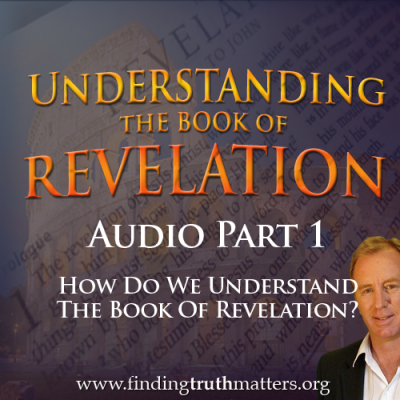
Understand The Book Of Revelation, Part 1 (Radio Edition)
Original price was: $1.25.$0.00Current price is: $0.00. -
Sale!
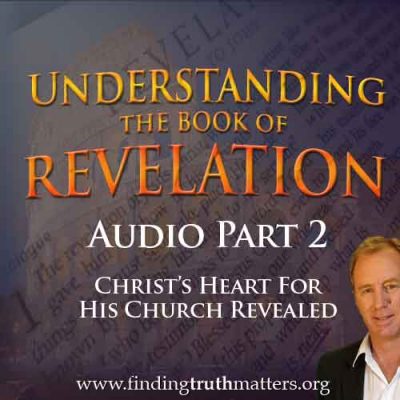
Understand The Book of Revelation, Part 2, Premium Audio Download
Original price was: $1.75.$1.25Current price is: $1.25. -
Sale!
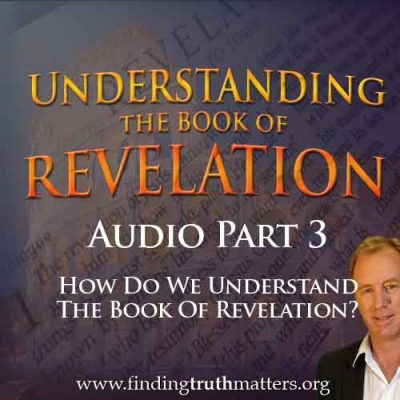
Understand The Book of Revelation, Part 3, Premium Audio Download
Original price was: $1.75.$1.25Current price is: $1.25. -
Sale!
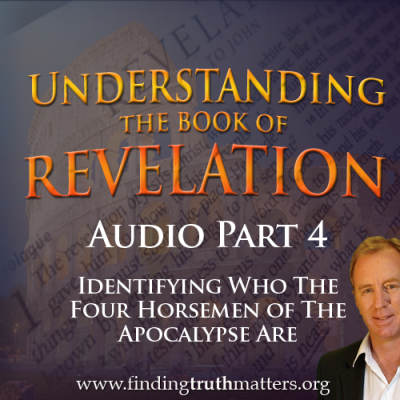
Understand The Book of Revelation, Part 4, Premium Audio Download
Original price was: $1.75.$1.25Current price is: $1.25. -
Sale!
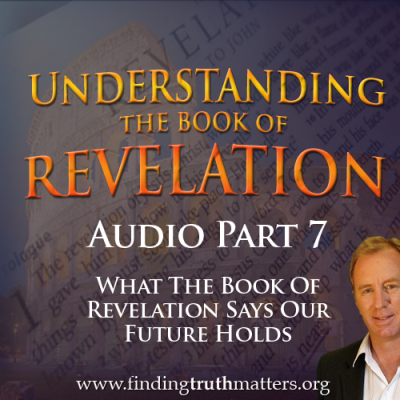
Understand The Book of Revelation, Part 7, Premium Audio Download
Original price was: $1.75.$1.25Current price is: $1.25. -
Sale!
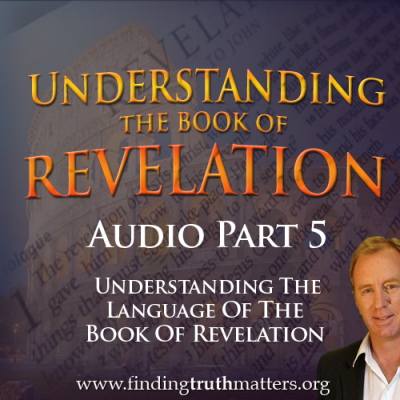
Understand The Book of Revelation, Part 5, Premium Audio Download
Original price was: $1.75.$1.25Current price is: $1.25. -
Sale!
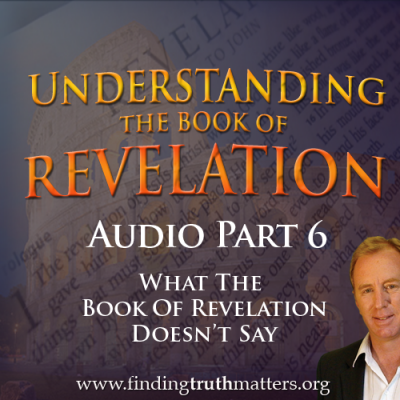
Understand The Book of Revelation, Part 6, Premium Audio Download
Original price was: $1.75.$1.25Current price is: $1.25. -
Sale!

Living By Virtue, Part 1 – By Virtue of Peace
Original price was: $1.75.$1.25Current price is: $1.25.
Articles
Read articles about ethics, apologetics, philosophy, public policy discussions here
Audio Archives
Listen to or download hundreds of teaching audios. Search by categories, topics and Scripture passages.
Teaching Videos
View hundreds of teaching videos here. Invite a ‘virtual’ guest speaker by using these videos.
Free Resources
Choose from hundreds of Printable, free, and downloadable, Bible Studies, and Sermon Powerpoints/Keynotes.








































